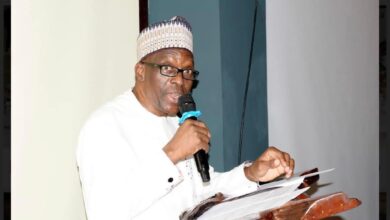Nandom, Colonialism, Millennial Politics and Political Polarity: A Historical Overview – Wilson Dabuo

Pre-Colonial andom Before Millennial Politics
Nandom, located in the Upper West Region of Ghana, has a rich pre-colonial culture deeply intertwined with its social fabric. In this context, the culture was predominantly agricultural, with farming being the primary economic activity. The people of Nandom practiced subsistence farming, growing crops such as millet, maize, and sorghum, which formed the basis of their diet.Socially, Nandom society was organized around extended families and kinship ties. Clan and lineage affiliations played a crucial role in determining social status and responsibilities within the community. Leadership structures were often decentralized, with local chiefs and elders exercising authority over their respective clans or villages.Traditional religious beliefs and practices were prevalent, with animism and ancestor worship being central elements of spiritual life. Rituals, ceremonies, and festivals were important occasions for community bonding and cultural expression, often involving music, dance, and storytelling.Social norms emphasized cooperation, mutual assistance, and communal decision-making, fostering a strong sense of solidarity and interconnectedness among the people. Gender roles were clearly defined, with men typically responsible for farming and hunting, while women played key roles in household management and childcare.In addition to agriculture, trade also played a significant role in the pre-colonial culture of Nandom. The region served as a hub for the exchange of goods and ideas, with trade routes connecting it to neighboring communities and beyond. This facilitated the exchange of commodities such as salt, kola nuts, and textiles, enriching the local economy and cultural diversity.Within the social dimension, the institution of chieftaincy held considerable influence in Nandom society. Chiefs were not only political leaders but also custodians of tradition, responsible for upholding customary laws, resolving disputes, and presiding over important ceremonies and rituals. They served as mediators between the community and the spiritual realm, ensuring harmony and balance in the social order.Education was primarily informal, with knowledge and skills passed down orally from generation to generation. Elders played a central role as repositories of wisdom, transmitting cultural values, histories, and survival techniques to the younger members of society. This oral tradition helped preserve the cultural heritage of Nandom and fostered a strong sense of identity among its people.The social fabric of Nandom was characterized by strong community bonds and collective responsibility. Mutual aid societies, known as “susu” or “asato”, provided social support networks for individuals and families in times of need, reinforcing the spirit of cooperation and solidarity.The Colonial SyndromeDespite the richness of its pre-colonial culture, Nandom, like many other African societies, experienced significant disruptions with the advent of colonialism and party politics. The imposition of colonial rule in particular, brought about profound changes in political, economic, and social structures, challenging traditional ways of life and altering the dynamics of Nandom society forever.Nandom After the Millennial Politics: 1990s and BeyondThe emergence of millennial politics has brought significant shifts to Nandom, reshaping its socio-political landscape and cultural dynamics. With the advent of millennial politics, there has been a notable departure from traditional leadership structures towards more inclusive and participatory forms of governance. Younger leaders, often educated and tech-savvy, have emerged as influential voices in shaping policy and decision-making processes. This shift has led to greater representation of youth perspectives and priorities in local governance.Technological advancements and increased connectivity have played a crucial role in facilitating political engagement and activism among Nandom’s population. Social media platforms have become powerful tools for mobilization, advocacy, and civic participation, enabling millennials to amplify their voices and organize collective action on issues of concern. Moreover, millennial politics has brought renewed emphasis on transparency, accountability, and social justice within Nandom’s governance structures. Youth-led movements and civil society organizations have emerged to demand greater accountability from elected officials and advocate for the rights of marginalized groups.Economically, the rise of millennial politics has spurred innovation and entrepreneurship in Nandom. Young people are harnessing technology and social enterprises to address local challenges and create economic opportunities. Initiatives promoting sustainable agriculture, renewable energy, and small-scale industries are gaining traction, contributing to the diversification of the local economy.Culturally, millennial politics has fostered a renaissance of indigenous identity and heritage in Nandom. Young people are reclaiming traditional practices, languages, and customs, revitalizing cultural festivals and community celebrations. This resurgence of cultural pride strengthens social cohesion and fosters intergenerational solidarity within the community.However, challenges persist in the transition to millennial politics in Nandom. Inter-generational tensions may arise as traditional and modern values intersect, leading to debates over cultural authenticity and social norms. Additionally, disparities in access to education, technology, and resources may exacerbate socio-economic inequalities, posing barriers to inclusive development.To this end, one can make the point that the emergence of millennial politics has ushered in a new era of change and transformation in Nandom. While bringing fresh perspectives and opportunities for progress, it also presents complex challenges that require collaborative and inclusive approaches to address effectively. Nandom’s journey into the future will be shaped by the dynamic interplay of tradition, innovation, and collective action in the pursuit of a more equitable and sustainable society. Everybody must be counted in the forward match.The Political Polarity of the Nandom SocietyThe rise of millennial politics in Nandom has not only catalyzed progressive changes but has also sparked political polarization within the society. This expanded historical overview delves into the multifaceted impact of millennial politics on the socio-political landscape of Nandom, including the dynamics of political polarization.In the wake of millennial politics, Nandom has witnessed a heightened polarization of political ideologies and affiliations. The emergence of youth-led movements and parties advocating for change has clashed with entrenched interests and traditional power structures, leading to ideological divides and political fragmentation within the community.Political polarization in Nandom has been exacerbated by socio-economic disparities and identity politics. Marginalized groups, such as rural farmers and ethnic minorities, often align themselves with parties or movements that promise to address their grievances and advance their interests. This polarization along socio-economic and ethnic lines has fueled tensions and divisions within the community.Moreover, the proliferation of misinformation and disinformation on social media platforms has deepened political polarization in Nandom. Rumors, false narratives, and propaganda spread rapidly, shaping public opinion and exacerbating distrust among different political factions. This erosion of trust in traditional institutions and media sources further entrenches polarized viewpoints and undermines democratic discourse.The polarization of political discourse in Nandom has also manifested in social and cultural spheres. Debates over issues such as land rights, resource allocation, and cultural heritage have become increasingly polarized, with divergent perspectives often leading to social tensions and conflicts within the community. Inter-generational divides between millennials and older generations further exacerbate these tensions, as differing values and priorities come into conflict.Despite the challenges posed by political polarization, there are also opportunities for dialogue and reconciliation in Nandom. Civil society organizations, community leaders, and religious institutions play crucial roles in fostering dialogue, promoting understanding, and bridging divides within the society. Initiatives aimed at promoting civic education, media literacy, and inter-group dialogue can help mitigate the effects of political polarization and build a more cohesive and inclusive society.The emergence of millennial politics has brought about significant changes and challenges in Nandom, including the polarization of political discourse and societal divisions. Addressing these challenges requires concerted efforts to promote dialogue, reconciliation, and inclusive governance, ensuring that Nandom’s journey into the future is characterized by unity, resilience, and shared prosperity





